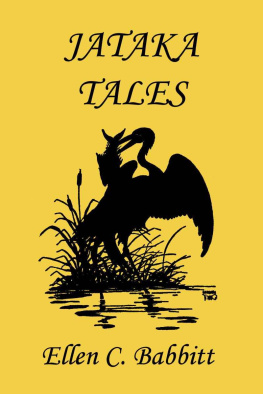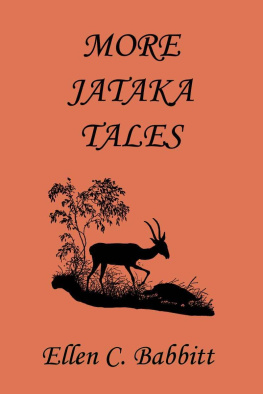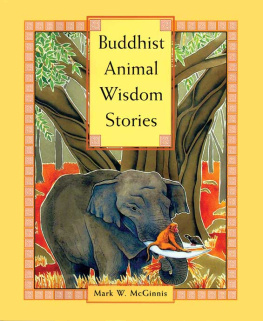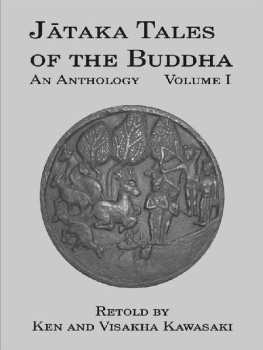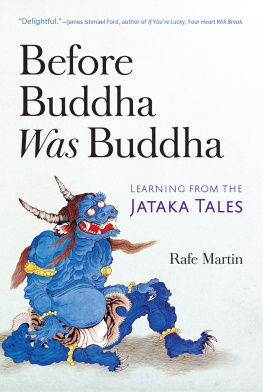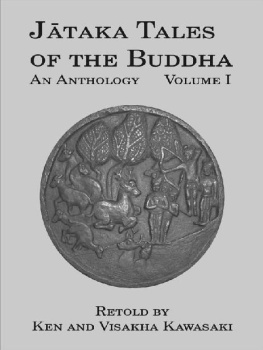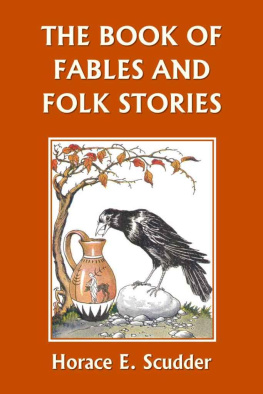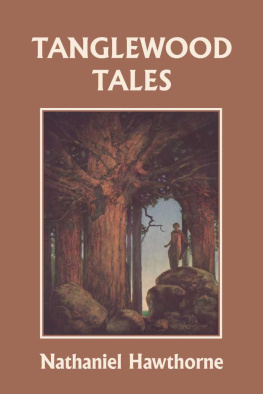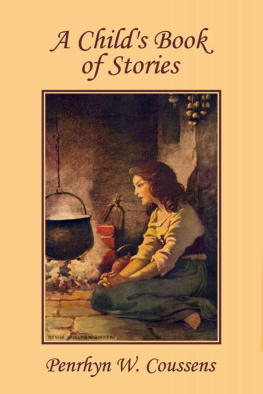Jataka Tales
by
Ellen C. Babbitt
Yesterday's Classics
Chapel Hill, North Carolina
Cover and Arrangement 2010 Yesterday's Classics, LLC
All rights reserved. No part of this book may be reproduced or retransmitted in any form or by any means without the written permission of the publisher.
This edition, first published in 2010 by Yesterday's Classics, an imprint of Yesterday's Classics, LLC, is an unabridged republication of the work originally published by The Century Co. in 1912. This title is available in a print edition (ISBN 978-1-59915-065-9).
Yesterday's Classics, LLC
PO Box 3418
Chapel Hill, NC 27515
Yesterday's Classics
Yesterday's Classics republishes classic books for children from the golden age of children's literature, the era from 1880 to 1920. Many of our titles are offered in high-quality paperback editions, with text cast in modern easy-to-read type for today's readers. The illustrations from the original volumes are included except in those few cases where the quality of the original images is too low to make their reproduction feasible. Unless specified otherwise, color illustrations in the original volumes are rendered in black and white in our print editions.
Foreword
Long ago I was captivated by the charm of the Jataka Tales and realized the excellent use that might be made of them in the teaching of children. The obvious lessons are many of them suitable for little people, and beneath the obvious there are depths and depths of meaning which they may learn to fathom later on. The Oriental setting lends an additional fascination. I am glad that Miss Babbitt has undertaken to put together this collection, and commend it freely to teachers and parents.
Publisher's Note
The Jatakas, or Birth-stories, form one of the sacred books of the Buddhists and relate to the adventures of the Buddha in his former existences, the best character in any story being identified with the Master.
These legends were continually introduced into the religious discourses of the Buddhist teachers to illustrate the doctrines of their faith or to magnify the glory and sanctity of the Buddha, somewhat as medieval preachers in Europe used to enliven their sermons by introducing fables and popular tales to rouse the flagging interest of their hearers.
Sculptured scenes from the Jatakas, found upon the carved railings around the relic shrines of Sanchi and Amaravati and of Bharhut, indicate that the "Birth-stories" were widely known in the third century B.C., and were then considered as part of the sacred history of the religion. At first the tales were probably handed down orally, and it is uncertain when they were put together in systematic form.
While some of the stories are Buddhistic and depend for their point on some custom or idea peculiar to Buddhism, many are age-old fables, the flotsam and jetsam of folk-lore, which have appeared under various guises throughout the centuries, as when they were used by Boccaccio or Poggio, merely as merry tales, or by Chaucer, who unwittingly puts a Jataka story into the mouth of his pardoners when he tells the tale of "the Ryotoures three."
Quaint humor and gentle earnestness distinguish these legends and they teach many wholesome lessons, among them the duty of kindness to animals.
Dr. Felix Adler in his "Moral Instruction of Children," says:
The Jataka Tales contain deep truths, and are calculated to impress lessons of great moral beauty. The tale of the Merchant of Seri, who gave up all that he had in exchange for a golden dish, embodies much the same idea as the parable of the priceless Pearl, in the New Testament. The tale of the Measures of Rice illustrates the importance of a true estimate of values. The tale of the Banyan Deer, which offered its life to save a roe and her young, illustrates self-sacrifice of the noblest sort. The tale of the Sandy Road is one of the finest in the collection.
And he adds that these tales "are, as everyone must admit, nobly conceived, lofty in meaning, and many a helpful sermon might be preached from them as texts."
Contents
I
The Monkey and the Crocodile
Part I
A MONKEY lived in a great tree on a river bank.
In the river there were many Crocodiles. A Crocodile watched the Monkeys for a long time, and one day she said to her son: "My son, get one of those Monkeys for me. I want the heart of a Monkey to eat."
"How am I to catch a Monkey?" asked the little Crocodile. "I do not travel on land, and the Monkey does not go into the water."
"Put your wits to work, and you'll find a way," said the mother.
And the little Crocodile thought and thought.
At last he said to himself: "I know what I'll do. I'll get that Monkey that lives in a big tree on the river bank. He wishes to go across the river to the island where the fruit is so ripe."
So the Crocodile swam to the tree where the Monkey lived. But he was a stupid Crocodile.
"Oh, Monkey," he called, "come with me over to the island where the fruit is so ripe."
"How can I go with you?" asked the Monkey. "I do not swim."
"Nobut I do. I will take you over on my back," said the Crocodile.
The Monkey was greedy, and wanted the ripe fruit, so he jumped down on the Crocodile's back.
"Off we go!" said the Crocodile.
"This is a fine ride you are giving me!" said the Monkey.
"Do you think so? Well, how do you like this?" asked the Crocodile, diving.
"Oh, don't!" cried the Monkey, as he went under the water. He was afraid to let go, and he did not know what to do under the water.
When the Crocodile came up, the Monkey sputtered and choked. "Why did you take me under water, Crocodile?" he asked.
"I am going to kill you by keeping you under water," answered the Crocodile. "My mother wants Monkey-heart to eat, and I'm going to take yours to her."
"Why did you take me under water, Crocodile?" he asked.
"I wish you had told me you wanted my heart," said the Monkey, "then I might have brought it with me."
"How queer!" said the stupid Crocodile. "Do you mean to say that you left your heart back there in the tree?"
"That is what I mean," said the Monkey. "If you want my heart, we must go back to the tree and get it. But we are so near the island where the ripe fruit is, please take me there first."
"No, Monkey," said the Crocodile, "I'll take you straight back to your tree. Never mind the ripe fruit. Get your heart and bring it to me at once. Then we'll see about going to the island."
"Very well," said the Monkey.
But no sooner had he jumped onto the bank of the river thanwhisk! up he ran into the tree.
From the topmost branches he called down to the Crocodile in the water below:
"My heart is way up here! If you want it, come for it, come for it!"
Part II
T HE Monkey soon moved away from that tree.
He wanted to get away from the Crocodile, so that he might live in peace.
But the Crocodile found him, far down the river, living in another tree.
In the middle of the river was an island covered with fruit-trees.
Half-way between the bank of the river and the island, a large rock rose out of the water. The Monkey could jump to the rock, and then to the island. The Crocodile watched the Monkey crossing from the bank of the river to the rock, and then to the island.

